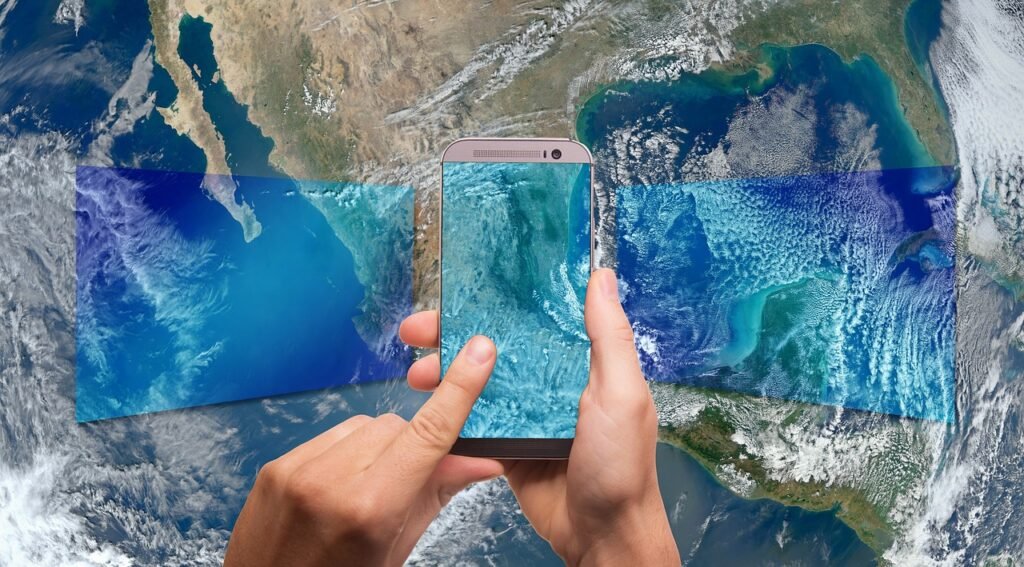How to Get Reliable Internet in Your RV: A Comprehensive Guide
Traveling in an RV offers an incredible sense of freedom and adventure. Whether you’re exploring national parks, camping by a serene lake, or simply hitting the open road, staying connected to the internet is often a necessity. Reliable internet access allows you to work remotely, stream your favorite shows, stay in touch with family and friends, and navigate your travels. In this comprehensive guide, we’ll walk you through everything you need to know about getting dependable internet in your RV, ensuring you stay connected without interruptions.
Thank you for reading this post, don't forget to subscribe!Why Reliable Internet is Essential for RV Travelers
- Remote Work: Many RVers work remotely and need a stable internet connection for video calls, accessing cloud services, and staying productive.
- Entertainment: Streaming movies, music, and online gaming are popular pastimes that require a strong internet connection.
- Communication: Keeping in touch with family and friends via email, social media, and video calls is important while on the road.
- Navigation and Research: Accessing maps, booking campsites, and researching destinations require an internet connection.
Understanding Your Options
There are several ways to get internet in your RV, each with its own set of advantages and limitations. Let’s explore the most common options:
1. Mobile Hotspots
A mobile hotspot is a portable device that uses cellular data to create a Wi-Fi network. You can connect multiple devices to this network, just like you would with a home router.
Pros:
- Easy to set up and use.
- Can be used anywhere with cellular coverage.
- Typically supports multiple devices.
Cons:
- Limited by cellular coverage areas.
- Data plans can be expensive.
- Speeds may vary based on network congestion.
Popular mobile hotspots include the Verizon Jetpack and the AT&T Nighthawk.
TravlFi was designed for RV travelers and is also great for digital nomads, truckers, campers, and more! It’s the perfect RV internet option for anyone who needs internet on the go. All you need to do is pick one of TravlFi’s portable internet devices, choose a pay-as-you-go data plan, and activate the device to get RV internet on the road.
2. Cellular Data Plans
Many RVers rely on their smartphones as mobile hotspots. Most modern smartphones have a built-in feature that allows them to share their cellular data connection with other devices.
Pros:
- Convenient since you likely already have a smartphone.
- No need for additional hardware.
Cons:
- Data limits and throttling after a certain usage.
- May not support as many devices as a dedicated hotspot.
Ensure your plan supports tethering and has sufficient data allowances. For unlimited plans, consider providers like Verizon or T-Mobile.
T-Mobile’s hotspot Magenta MAX is more suitable for people on short vacations, weekend travel, or the occasional road trip because it doesn’t frontload consumers with expensive hardware costs. For RV users in the United States, a T-Mobile hotspot promises faster Wi-Fi on average and a lightweight mobile hotspot device instead of having to set up your Starlink receiver in a perfect, uncovered location every time you stop.
3. Satellite Internet
Satellite internet provides coverage virtually anywhere, making it an excellent choice for remote locations where cellular service is unavailable.
Pros:
- Works in remote areas without cellular coverage.
- Reliable connection regardless of location.
Cons:
- Expensive setup and monthly fees.
- Slower speeds and higher latency compared to cellular.
- Requires a clear view of the sky for the satellite dish.
Although Starlink Roam comes with some considerable up-front hardware expenses and a larger monthly fee, we recommend it for full-time RVers or digital nomads working on the road. Providers like HughesNet and Starlink offer satellite internet services specifically designed for RVs.
4. Campground Wi-Fi
Many campgrounds offer Wi-Fi to their guests. This can be a convenient and cost-effective option if you’re staying at a site with good connectivity.
Pros:
- Often included in the campground fees.
- No need for additional equipment.
Cons:
- Variable quality and speed.
- Can be slow or unreliable if many users are connected.
5. Wi-Fi Extenders and Boosters
Wi-Fi extenders and boosters can improve the range and quality of campground Wi-Fi or other nearby networks.
Pros:
- Enhances weak Wi-Fi signals.
- Can be used with public or campground Wi-Fi.
Cons:
- Does not create an internet connection, only extends existing ones.
- Limited by the quality of the original Wi-Fi signal.
Popular options include the Alfa WiFi Camp Pro 2 and the Winegard ConnecT 2.0.
Setting Up Your RV for Internet
Once you’ve chosen the best option(s) for your needs, it’s time to set up your RV for a reliable internet connection. Here are the steps to ensure a smooth setup:
1. Assess Your Needs
Determine how many devices will be connected and what type of activities you’ll be doing. Streaming, video calls, and online gaming require more bandwidth than browsing or emailing.
2. Choose Your Primary Internet Source
Select the primary method that best suits your needs. For example, if you frequently travel to remote areas, satellite internet might be the best choice. If you stay mostly in areas with good cellular coverage, a mobile hotspot or cellular data plan could be more practical.
3. Invest in Quality Equipment
Invest in high-quality equipment for your chosen internet source. For mobile hotspots, consider devices with good reviews and strong performance. For satellite internet, ensure you have a reliable dish and modem.
4. Set Up a Backup Option
Having a backup internet option can be a lifesaver if your primary connection fails. For example, if you primarily use a mobile hotspot, a Wi-Fi extender for campground Wi-Fi can serve as a backup.
5. Optimize Your RV’s Interior for Connectivity
Position your router, hotspot, or satellite dish in a location with the best signal reception. Avoid placing them near metal objects or inside cabinets that can interfere with the signal.
Pro Tips for Reliable RV Internet
To ensure your internet connection is reliable and efficient, here are some pro tips to follow:
1. Monitor Your Data Usage
Keep track of your data usage to avoid overage charges or throttling. Many mobile hotspots and smartphones have built-in data usage monitors. You can also use apps like My Data Manager to track your usage.
2. Use Data-Saving Techniques
Reduce your data consumption by using data-saving settings on streaming services and apps. For example, lower the video quality on Netflix or YouTube to use less data. Use offline maps and download content when you have a strong Wi-Fi connection.
3. Secure Your Connection
Protect your internet connection with strong passwords and encryption. Use a VPN (Virtual Private Network) to secure your data, especially when using public Wi-Fi networks. For VPN recommendations, check out NordVPN or ExpressVPN.
4. Test Your Setup
Before hitting the road, test your internet setup to ensure everything works smoothly. Check the speed and reliability of your connection in different locations within your RV and make adjustments as needed.
5. Stay Updated on Coverage Areas
Stay informed about the coverage areas of your cellular provider or satellite service. Use coverage maps provided by companies like OpenSignal or CellMapper to plan your travels around strong signal areas.
Practical Scenarios and Solutions
To further illustrate the importance of reliable RV internet and how to achieve it, let’s look at a few practical scenarios:
Scenario 1: Working Remotely from a National Park
You’re a digital nomad working remotely from an RV parked in a beautiful national park. Cellular coverage is weak, but you have a mobile hotspot with a powerful antenna booster. By positioning your hotspot in an optimal location and using a booster, you maintain a strong connection for video calls and remote work.
Scenario 2: Streaming Movies on a Rainy Day
It’s a rainy day, and you decide to stream movies in your RV. The campground Wi-Fi is slow due to high usage. Luckily, you have a backup mobile hotspot with an unlimited data plan. Switching to your hotspot ensures smooth streaming without buffering.
Scenario 3: Navigating Off-Grid Adventures
You’re exploring off-grid locations where cellular service is nonexistent. With your satellite internet setup, you receive reliable internet for navigation, weather updates, and emergency communication. The satellite dish is positioned with a clear view of the sky, ensuring uninterrupted service.
Conclusion
Staying connected to the internet while traveling in your RV is essential for remote work, entertainment, communication, and navigation. By understanding your options, investing in quality equipment, and following best practices, you can ensure a reliable internet connection wherever your adventures take you.
Remember to choose the best internet source for your needs.




